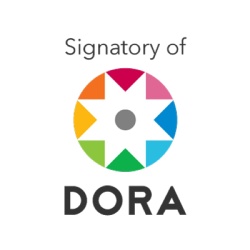The roles ofmediain shaping public opinion A pragmatic approach to al-Jazeera's Twitter discourse
الخطاب الإعلامي ودوره في تشكيل الرأي العام مقاربة تداولية لخطاب قناة الجزيرة عبر موقع تويتر
Abstract
In this study, we will attempt to discuss some of the questions related to cybernetics and social media and their correlation with public opinion, reviewing the role played by social media platforms in general and Twitter, in particular, in constructing, controlling and directing public opinion. Using the pragmatic approach, we are going to analyze some of Al-Jazeera's posts on Twitter from its program "Fawqa sulta’ (Beyond Power). Wehave opted to use the pragmatic approach as an appropriate introduction that enables us to clarify the purpose and function of the media discourse, and to understand the relationships that exist between the sender and the recipient in a particular communicative context.
The study reached the conclusion that the examined discourse models tends to favour a certain interpretation of the events, and to mobilize the public in support of a particular points of view.
Downloads
References
Orecchioni, C. K. (1997), La connotation, PU de Lyon.
Schoentjes, P. (2001), Poétique de l’ironie, édition seuil, France.
Dehosnay, J. (1975), Le macroscope,Point, Paris, France.
Benoit, Denis. information-communication, Ficher.
Lévy, André. (1978), Psychologie sociale, Tome 1, édition Dunod, France.
Terry, G. R, Franklin, G. S. (1995), Les principes d management, Traduction de Philippe de Lavergne, Paris, Eonomica, France.
- Arabic references in English :
Ibn Manzur, J. D. (1990). Lisan Al-Arab. Dar Sader, Beirut, Lebanon.
Abu As'ad, A. A. (2011). Modifying Human Behaviour: Theory and Application. Dar Al-Maseera for Publishing, Distribution, and Printing, Amman, Jordan.
Islaimani, A. (2005). Educational Communication: An Introduction to Quality Education. Nedacom Design Company, Publications of the Faculty of Education, Rabat, Morocco.
Badawi, A. Z. (1985). Dictionary and Media Terminology. Dar Al-Kitab Al-Masri Al-Lubnani, Cairo, Egypt.
Bourdieu, P. (2004). Television and Mechanisms of Manipulating Minds. Dar Kenana for Studies, Publishing, and Media Services, Damascus, Syria.
Hamdawi, J. (2015). Discourse Strategies and Discourse Analysis. Morocco.
Sahrawi, M. (2005). Discourse Strategies Among Arab Scholars: A Discourse Study of the Phenomenon of "Speech Acts" in Arabic Linguistic Heritage. Dar Al-Tali'a, Beirut, Lebanon.
Al-Aqad, A. (2002). Analysis of Journalistic Discourse: From Language to Power. Dar Al-Thaqafah, Morocco.
Asar, K. A. (2002). Introduction to Social Cybernetics. Diwan Al-Matbou'at Al-Jami'ya, Algeria.
Al-Ayashi, A. (2011). Dialogical Appropriation in Linguistic Interaction: From Awareness of the Qualitative Specificities of the Phenomenon to Formulating Its Regulating Laws. Dar Al-Aman, Rabat.
Al-Mutawakil, M. (2010). Discourse and Characteristics of the Arabic Language: A Study in Function, Structure, and Style. Dar Al-Aman, Rabat.
Maqbool, I. (2011). The Trading Horizon: The Theory of Meaning and Context in Arab Heritage Practice. Alam Al-Kitab Modern World, Irbid, Jordan.

This work is licensed under a Creative Commons Attribution-NonCommercial 4.0 International License.









